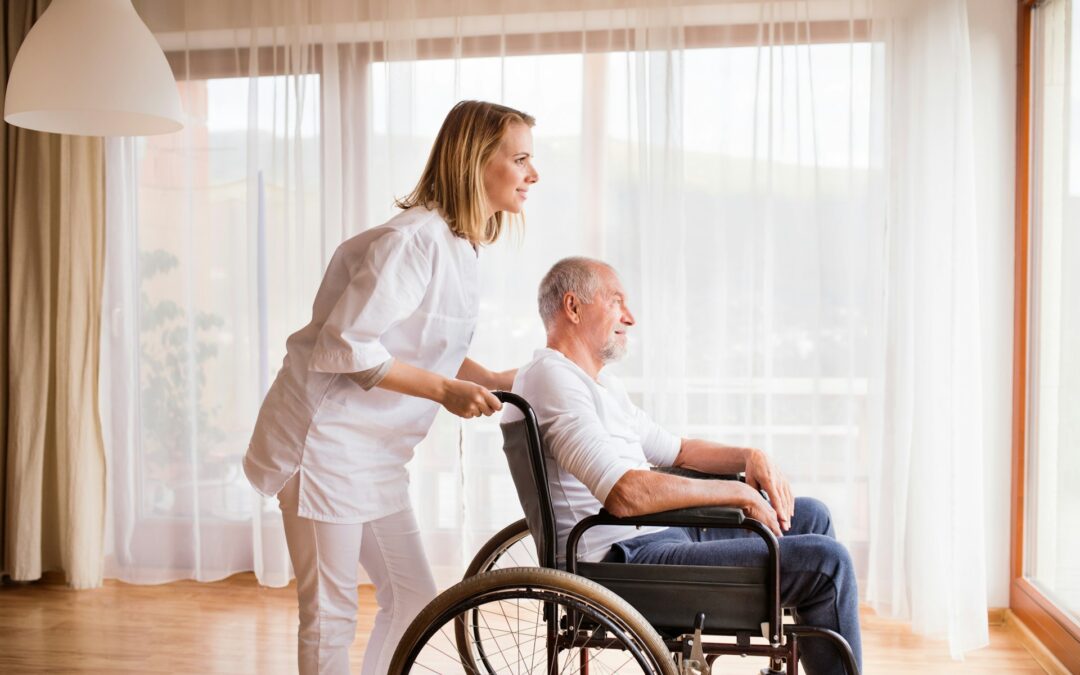Maintaining mobility and independence is an essential aspect of aging gracefully. Studies have shown that seniors who remain mobile have a higher quality of life and enjoy better overall well-being. However, as seniors grow older, they may experience various physical challenges that can make everyday mobility more difficult. These challenges can include arthritis, balance issues, and other age-related conditions.
To support seniors in continuing to live independently, in-home care services, like those provided by Honeybee Homecare based in Roswell, GA, offer crucial assistance in improving mobility, promoting safety, and identifying appropriate assistive devices. In this blog, we will explore various strategies and solutions that can be employed to support seniors’ mobility, from the benefits of in-home care services to in-depth discussions about assistive devices and home modifications.
Home Assessments and Modifications: Ensuring a Safe and Accessible Environment
- Evaluate Accessibility: Review seniors’ living spaces for potential obstacles and mobility hazards, from cluttered pathways to uneven flooring.
- Leveraging Home Modifications: Install grab bars, handrails, and non-slip surfaces in areas where seniors may require additional support and safety, such as bathrooms and staircases.
- Rearrange Furniture: Consider rearranging furniture to create wider pathways that facilitate easy movement and minimize the risk of falls.
- Lighting Improvements: Ensure all areas of the home are well-lit, with easily accessible light switches, to give seniors a clear view of their surroundings and reduce the chance of accidents.
How In-Home Care Services Aid in Mobility Management
- Assistance with Daily Activities: In-home caregivers provide support with daily tasks, such as bathing, dressing, and meal preparation, easing the physical strain and helping seniors conserve energy for other essential activities.
- Encouraging Physical Movement: Caregivers can help seniors participate in regular exercise routines, enhancing overall mobility and promoting a sense of independence.
- Safety Monitoring and Supervision: In-home caregivers constantly monitor seniors for potential mobility challenges and provide the necessary support to ensure their safety while engaging in day-to-day activities.
- Recommendations on Mobility Solutions: Knowledgeable in-home caregivers may recommend appropriate assistive devices and strategies to help seniors better manage their mobility.
Assistive Devices for Seniors: Identifying the Right Tools for Improved Mobility
- Canes: An affordable and easy-to-use option, canes provide seniors with added balance and support when walking.
- Walkers: Specifically designed for individuals with more significant mobility challenges, walkers offer additional stability to help seniors navigate their environment independently.
- Wheelchairs and Scooters: For seniors who struggle with extensive mobility issues, wheelchairs and scooters can provide a means of independent transportation and enhance personal freedom.
- Wearable Technology: Wearable devices, such as smartwatches with built-in fall detection and monitoring features, can help ensure seniors’ safety and alert caregivers or family members when assistance is needed.
The Importance of Physical Fitness in Maintaining Mobility for Seniors
- Benefits of Regular Exercise: Engaging in regular physical activity helps seniors maintain muscle strength, flexibility, and balance, all of which are essential for sustaining mobility and preventing falls.
- Tailored Exercise Programs: Seniors should work with their healthcare provider or a certified fitness professional to develop a personalized exercise plan that meets their unique needs and abilities.
- Types of Recommended Exercises: Low-impact activities such as walking, swimming, and yoga are excellent options for seniors looking to maintain and improve their mobility.
- Staying Motivated: Encourage seniors to participate in social activities, like group exercise classes, to stay motivated and accountable to their fitness goals.
Conclusion:
Supporting seniors in their quest to maintain mobility and independence is crucial for ensuring their overall quality of life. By employing strategies such as home assessments and modifications, receiving in-home care support, utilizing assistive devices, and engaging in regular physical activity, seniors can continue to enjoy an increased sense of freedom and self-sufficiency. With the assistance of dedicated caregivers and healthcare professionals, our aging loved ones can lead fulfilling, empowered lives well into their golden years.
If you’re seeking professional in home care in Atlanta, GA, to help your senior loved ones maintain their mobility and independence, Honeybee Homecare can provide invaluable assistance. Our dedicated in-home caregivers offer mobility management and daily activity support for seniors. Contact us today to schedule a free in-home consultation and discuss how our services can help your aging loved ones continue to live independently, safely, and comfortably in their homes!

